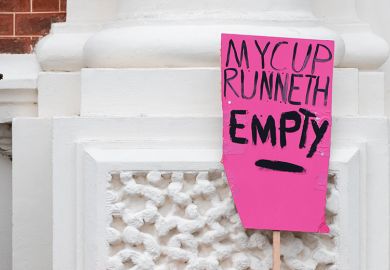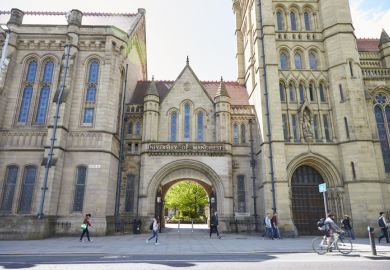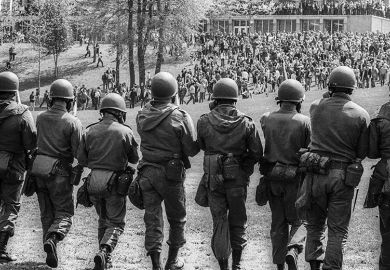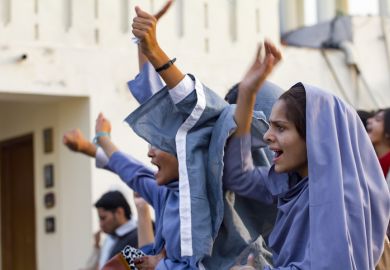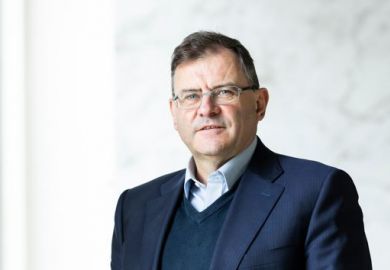It’s 29 November 2020. Two minutes to midnight. Has it really been four straight hours of editing? Sigh. Yawn. Stretch. At least it’s a little better than last night – sorry, make that this morning – when it was well into the wee hours before I finally finished up and hit the “render” button on the latest video for the undergraduates.
It’s been like this for what seems like forever. Since the pandemic, we’ve all been tied to our laptops and video cameras, talking down the barrel of a lens – an unblinking, unforgiving audience even less responsive than the least engaged undergraduate class in the graveyard shift of a Friday 5pm lecture slot. Nerves are frayed, everyone is exhausted, and yet we continue to work flat out for our students. Personally, I’m putting in upwards of 70 hours a week trying to balance research, teaching, and those ever-present, ever-expanding administrative commitments. Family? Occasionally.
But – if you’ll excuse the tiresome cliché – here’s the thing: I don’t even have to do this. My position is entirely funded (100 per cent full-time equivalent) by an established career fellowship provided by the UK’s Engineering and Physical Sciences Research Council (thank you most kindly, EPSRC and, of course, the taxpaying British public). So I am doing my teaching completely voluntarily. The University of Nottingham is getting the time I devote to The Quantum World, a core second-year module taken by roughly 200 students, free. Videos, online notes, simulations, interactive quizzes, worksheets, workshops, engagement sessions, individual tutorial support, coursework, exam papers and responding to emails from students (so many emails) – all completely outside my fellowship role and, therefore, provided in my own time.
Why? Precisely because nerves are frayed and exhaustion rife. My colleagues are doing their utmost to provide the highest-quality teaching they can under the trying lockdown conditions; my 70-hour-minimum weeks are certainly not outside the norm. And one aspect of Physics and Astronomy at Nottingham that I love – and which has kept me here for nearly 30 years – is the collegiality of the school. Sure, we waste valuable time and effort fighting every hare-brained scheme dropped on us from on high by central university management, but that has only helped bolster the group dynamic: we stand together.
In short, the EPSRC fellowship began in September, just weeks before the second national Covid-19 lockdown began and I didn’t want to drop my colleagues in it. I’ve got to admit that I also immensely enjoy teaching. So I remained committed to delivering the first semester of The Quantum World, as I had agreed to do before the fellowship was awarded.
Fast-forward to August 2023.
On the same day that I received my Dearing Award certificate for “outstanding contribution to the development of teaching and student learning”, signed by Nottingham’s vice-chancellor and the pro vice-chancellor for education and student experience, I was told that my participation in the University and College Union marking and assessment boycott means that 50 per cent of my salary for a period of up to three months will not be paid. (In a deliciously ironic turn of events, I was nominated for the Dearing Award by an undergraduate who had taken The Quantum World module, which I have continued to teach, gratis, for the past three years.)
In other words, senior management at the University of Nottingham believe that it is fair and equitable to deduct half my EPSRC-funded salary for not carrying out one small aspect of entirely voluntary teaching activity that was undertaken in my own time (amounting to roughly 1,000 hours so far).
From a very early stage of their undergraduate studies, physicists are trained to consider systems and situations in terms of limits, especially when it comes to the physics of the ultra-small and the ultra-large. At one end of the scale, in the quantum world – and, indeed, in The Quantum World – we ask what happens if we consider a system in the limit of, for example, very high temperature or very large size. At the other end, in special relativity, undergraduates are always encouraged to convince themselves that the equations remain valid if they plug in velocities that are vanishingly small compared with the speed of light.
These are essentially sanity checks: if we consider the problem at the appropriate limits, does everything still make sense? Putting this in the context of the punitive and disproportionate pay deductions meted out to those participating in the marking and assessment boycott, mine is a particularly instructive case. “In the limit where a university’s contribution to an academic’s salary drops to zero, is it reasonable – in this universe or any other – that the university withhold 50 per cent of that salary? Discuss from both economic and ethical standpoints.”
I contacted members of Nottingham’s senior management prior to submitting this article requesting a formal quote representing the university’s position on this. I didn’t receive a reply. But if, as I would assert, it’s entirely unreasonable to hold back 50 per cent of salary in this limit, what does that tell us about the pay deductions imposed on union members across the country who have similarly, routinely worked far beyond their contracted hours for many, many years?
Philip Moriarty is professor of physics at the University of Nottingham.
Register to continue
Why register?
- Registration is free and only takes a moment
- Once registered, you can read 3 articles a month
- Sign up for our newsletter
Subscribe
Or subscribe for unlimited access to:
- Unlimited access to news, views, insights & reviews
- Digital editions
- Digital access to THE’s university and college rankings analysis
Already registered or a current subscriber? Login

